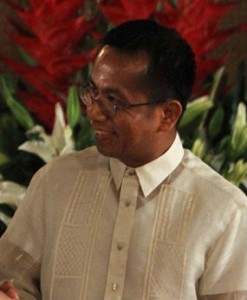The country’s chief economist said the impressive 6.5-percent growth for 2012 should be sustained for several years to allow it to seep through the grassroots and benefit ordinary Filipinos.
“We are hoping and we are working [to] sustain this growth and get this growth spreading, benefiting the broader sections of society. The key here is really sustaining it in such a way [that it will] benefit a large part of population, especially the poor,” said Socioeconomic Planning Secretary Arsenio Balisacan, also the director general of the National Economic and Development Authority (Neda).
Balisacan was in the Senate Wednesday where his confirmation by the Commission on Appointments was approved at the committee level.
Balisacan sounded hesitant when asked to confirm the 6.5-percent growth rate in an ambush interview.
It was Sen. Franklin Drilon, chairman of the Senate finance committee, who later told the Philippine Daily Inquirer that the figure was what would be announced Thursday.
President Aquino announced on Tuesday that Filipinos “will be impressed” at Thursday’s announcement of the country’s 2012 fourth quarter growth rate as well as last year’s overall growth.
Asked about a time frame before the broad section of Filipinos would experience the country’s economic growth at a more personal level, Balisacan said: “It should be happening but don’t expect a miracle [where poverty would be] wiped out or substantially reduced.”
Balisacan said the 6.5-percent figure reflected “only one year” of performance by the economy.
Not yet full story
“If you note the experiences of countries around us, it takes several years of sustained… [or] rapid growth before you can reduce poverty say by one-half [of the population],” he said.
Sen. Edgardo Angara agreed, saying it would be difficult at this point to “see where that growth has occurred and how far has it spread among social classes and geographical areas.”
“The figure alone does not tell us yet the full story,” Angara added.
Balisacan said Neda had drafted a “two-pronged attack on poverty” that involves “raising the level of growth and improving access to economic and basic services by the poor.”
Balisacan said the ongoing conditional cash transfer program that gave monetary incentives to poor families who sent school-age children to school would have “poverty-reducing effects.”
But longer-term measures would include the expansion of infrastructure to create employment opportunities would need the cooperation of Congress.
Drilon said the selection of members of the next legislature that was key to sustaining the growth.
“The President has asked that those in the Senate should support his program. If we are convinced that his program is working, then [the people] should vote for the President’s choice,” said Drilon, campaign manager of Liberal Party senatorial lineup.
